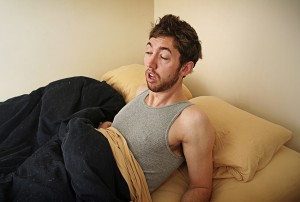7 Ways Hangovers Hurt Your Body

(This content is being used for illustrative purposes only; any person depicted in the content is a model)
For anyone out there who has experienced a night of binge drinking, or even just had a few drinks too many before going to bed, and woke up the next morning feeling all kinds of dead, the term ‘hangover’ is familiar. Sometimes even that seems like an understatement with how absolutely demolished you feel by the time you get out of bed the next day.
Some Science and Stuff
The truth is there is a real risk you run with that kind of drinking whether you notice or not, and there is a real reason hangovers hurt so much. According to PhD George Koob, director of the National Institute on Alcohol Abuse and Alcoholism (NIAAA), these symptoms are pretty easy to explain because they’re basically like a mini-alcohol-withdrawal-syndrome. Whenever we take intoxicants into our body, our brain changes. The brain essentially adapts to that change, so when the drug is removed the opposite reaction takes place.
So it makes sense when you really think about it that the symptoms of a hangover feel like the polar opposite of the affects we experience when drinking alcohol. For example: When drinking you may have felt ecstatic, uninhibited and pain-free. However upon waking up you’re feeling depressed, anxious, weak and beat down. There are so many real affects on the body you can feel the morning after a bad bout of drinking. These are 7 ways hangovers hurt your body.
1. Pain and Inflammation
Alcohol can cause a rebound affect that makes you feel physical pain when hung-over. Alcohol is an analgesic, meaning it can dull physical or emotional pain. Alcohol also wears off, and then the pain can come back worse than ever. Even if you didn’t have injuries before drinking, we often tend to pick some up along the way. Inflammation or the release of pro-inflammatory compounds called cytokines can also contribute to this physical pain.
2. Dizziness
Being drunk typically makes you dizzy, and a hangover can keep that going. One reason is orthostatic hypotension, similar to a faint feeling people get from standing up too fast.
Hangovers can also disrupt the reflexes that control balance in the body, or it could be residual effects in your cerebellum, which is the part of your brain that controls fine motor movement.
3. Disorientation
Drinking excessively burns a lot of dopamine, and your brain has to do its best to catch up with the body, so concentration can go right out the window.
Brain changes commonly associated with a hangover can interfere with cognitive function in your frontal cortex, which is responsible for some important stuff, such as:
- Decision making
- Executive function
- Thinking about the future
4. Endorphin Deficit
Often times that same over-use of dopamine we experience during an evening of drinking can result in waking up the next day and feeling overly-depressed. When we wake up with a hangover and we feel especially emotional and sad the next day, it’s because we pretty much released all of our endorphins and there’s this deficit state in our minds where we lack the capacity to be as happy as we were the capacity to be as happy as we were the night before.
5. Alcoholic Anxiety Attacks
Alcohol has a tendency to subdue our nerves, and so the next day our anxiety symptoms or increase in heart rate are referred to as sympathetic reactions. That is due to the fact that while intoxicated, those effects are blocked.
When alcohol is removed, our anxiety and insecurities tend to manifest. This kind of reaction doesn’t typically happen when you have just one or two drinks, but if you binge drink you’re more likely to experience episodes of anxiety.
6. Sleeping Problems
A hangover can actually start long before you even get the chance to wake up!Alcohol actually disrupts sleep patterns, and even worse is that this disruption can last more than a day or two.
Even beyond that, because alcohol can keep you up, it can increase REM sleep when you finally do get to sleep, and since nightmares are more likely to occur during REM sleep you are more than likely to scare yourself awake!
7. Congestion
Alcohol intolerance can actually cause nasal congestion and sinus pain, which the Mayo Clinic describes as a condition where you’re unable to break down alcohol, or the ingredients in alcohol to be specific. Some call it an alcohol allergy, since the reaction is usually to a specific ingredient in the drink such as grains or preservatives.
If congestion comes hand-in-hand with a hangover, look out for:
- Flushing
- Hives
- Headache
- Worsening of existing asthma
This may be an indication you should see an allergist about.
In all reality, hangovers are just the worst. So many times you will hear someone with a miracle hangover cure, but in my personal experience a lot of it is pure speculation and shenanigans! And I have had some horrid hangovers in my day and tried many a remedy. At the end of the day, drinking alcohol excessively did a lot more harm than good in my life.
Alcoholism is a dangerous and deadly disease, and most people don’t realize that drinking habits like binge drinking and black-out drunks are signs of a much more serious addiction. You don’t have to keep waking up feeling like you’re dead, or even wishing you were. If you or someone you love is struggling with alcohol abuse, substance abuse or addiction, please call toll-free 1-800-951-6135. We want to help. You are not alone.
